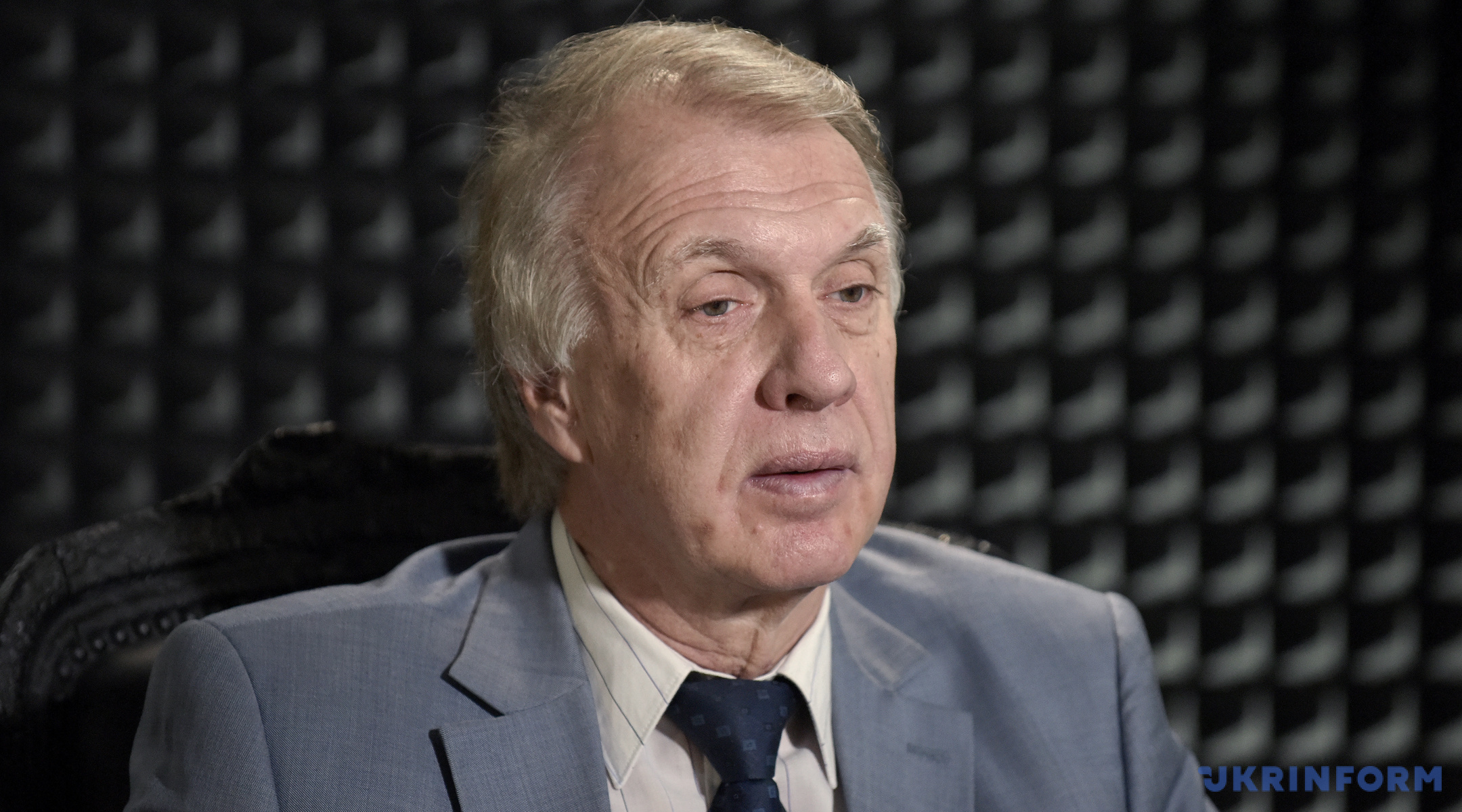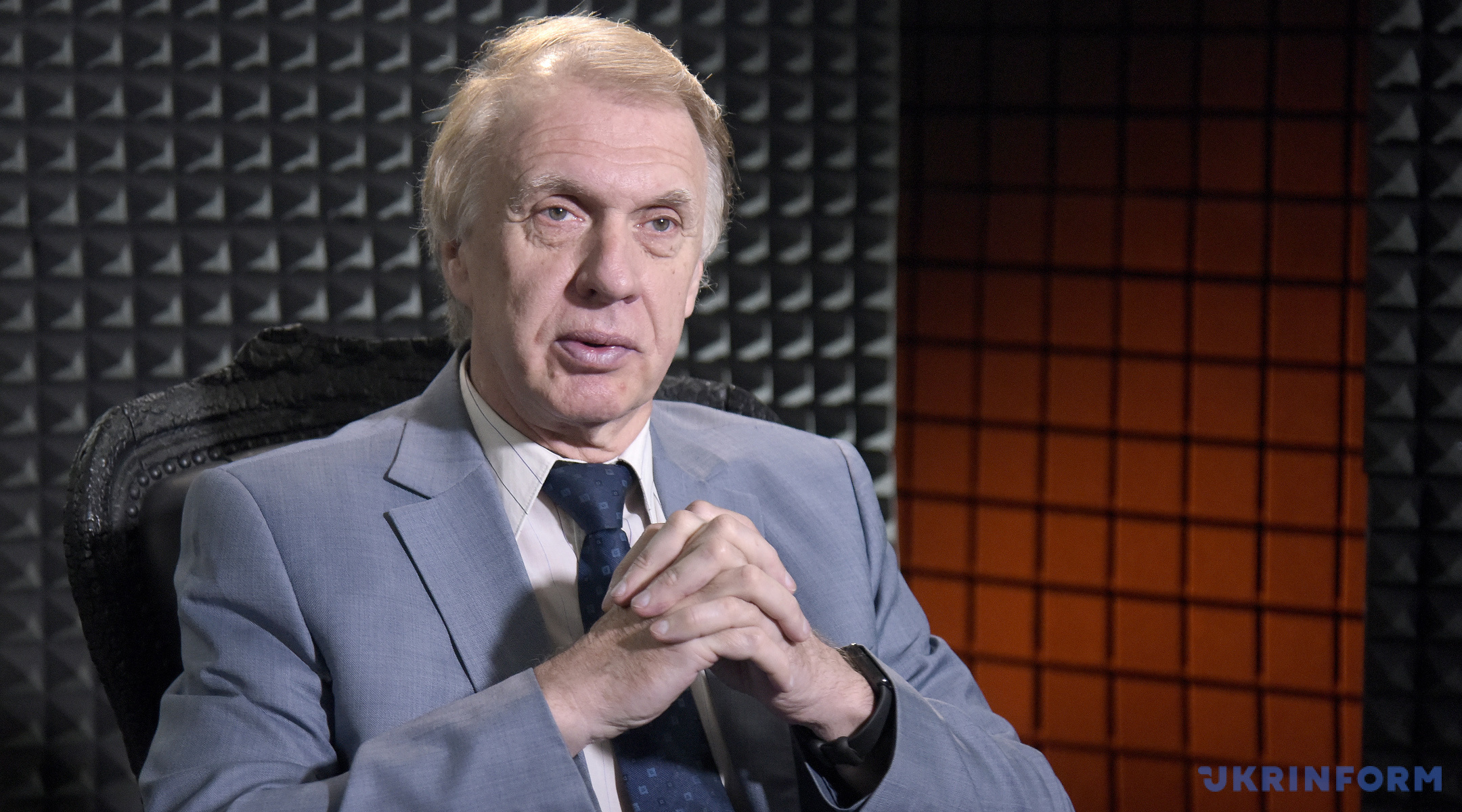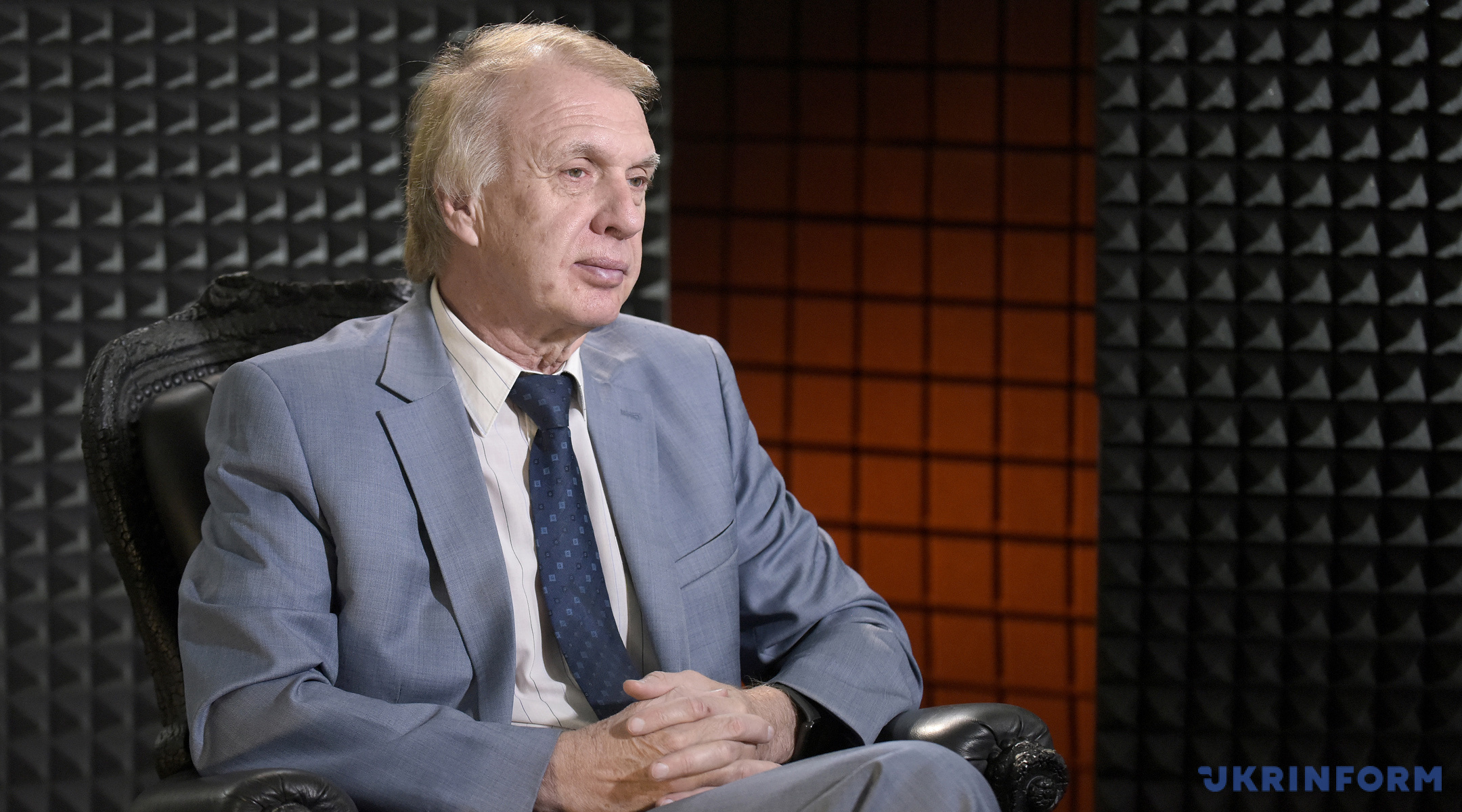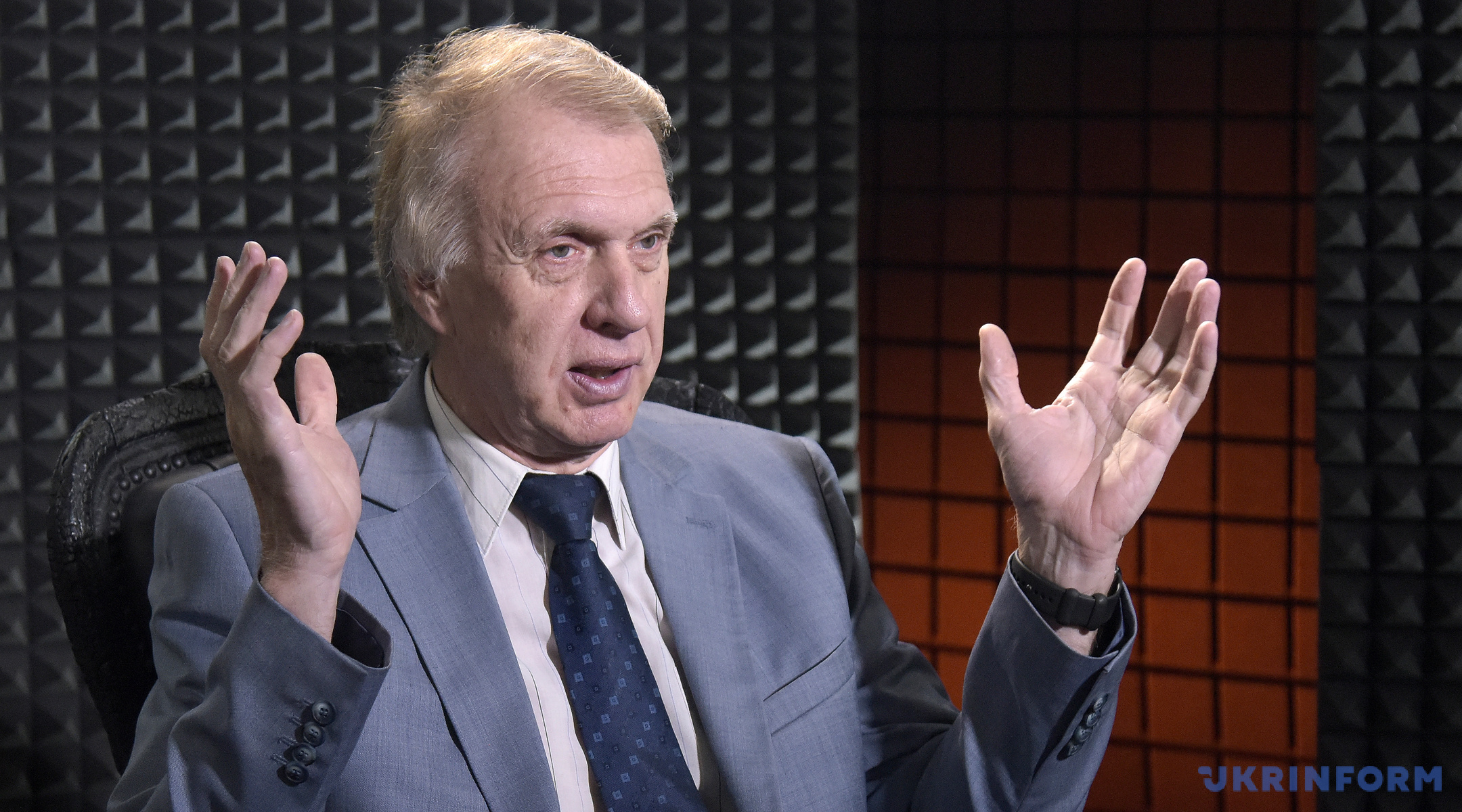August is a vacation month in Europe and the US, excepting perhaps the US presidential campaign, which is running non-stop. It’s a suitable time to sum up the interim results of the spring-summer 2024 political season. What was of significance, what stood out most, how is it important for Ukraine, for our victory, what is in for us? Ukrinform spoke with Volodymyr Ohryzko, former Foreign Minister of Ukraine (2007-2009) to discuss these and more issues in the current context.
- For us, the ongoing war is the central issue among all others. What has changed in the first half of the year in the perception of Ukraine’s developments by non-Ukrainian politicians and the world overall?
- We must go back to 2014, when the war began actually. The war has been raging for 10 years now, and the saddest thing for me is that our Western partners, for all these 10 years, have been thinking they would be able to walk between the raindrops. You may recall that, in 2014, Washington was telling us in explicit and tough terms that there was no need for escalation, and the situation would eventually be settled in some way or another. Now that the war has reached its most active, hottest phase, weapons aid is being provided to us in the same strictly dozed, portioned amounts as previously, the weapons that we need critically, without which we are not going to be able to hold on. Moreover, we are prohibited from using the weapons provided to hit the enemy exactly where it needs to be hit. That said, I, to be honest, am not too much optimistic about a prospect of our partners changing their policy with this respect, even though some progress is obvious, indeed. Let's recall what we received in the fall of 2021 compared with what we receive today. Back then we were receiving first-aid packages, helmets, blankets and similar supplies provided in aid by a major European partner. Today, we are lacking nothing except, perhaps, Taurus [missiles]. We used to receive Stingers from our number-one international partner from overseas. Now we are receiving US-built F-16 fighters, and this with the permission of the United States. In other words, obvious progress has been achieved, indeed, over these 900 days [of the war].
But the question is though, does this progress satisfy us? I don’t think so, unfortunately. Still, the past few months have seen a progress in the West's perception of Russia as not only an enemy to Ukraine, but, rather, as our common enemy. And a peace isn’t what should be sought for with this common enemy, but action leading to a victory needs to be done. We therefor don't need a peace plan, but need a victory plan. And the sooner such a plan -- which will outline in detail how and what exactly we will have to do to win together -- will be on the table, the sooner the Russian invasion will be overcome.
- Basically, the key issue is how the leaders of our partner countries perceive the situation at the frontline, and what they think a victory should look like. A victory of what kind? I would be interested to see a relevant document to be submitted to the United State Congress for consideration. In voting a package that included a Ukraine aid bill, the Congress demanded that the Departments of State and Defense provide a vision, a concept of how to help Ukraine win. Once a package containing such a vision is put on the table, I think the situation can change, because really, holding on and winning are not same. Holding the front line while knowing that the enemy is always nearby and ready to attack is not an option. This doesn’t solve the situation. And a shared vision that Russia poses a challenge not to Ukraine, but to the security of Europe and globally is not yet consolidated enough, unfortunately.

- What we want actually is that such a plan is laid on the table of both the Republicans and Democrats, of the American establishment as a whole. But the issue is such that, there is a Pompeo’s plan, and there is purportedly a Trump’s plan; are those two the same is uncertain now. There is a formula such as "as much as may be needed", but it is unclear what for. The main thing, which is our vision of what a victory should be like, isn’t there either. It can be assumed this is Zelensky’s peace formula. Yes, it does exist, and it is appropriate, fully logical, covering all the aspects of a comprehensive and fair settlement. But these are concepts only, just formulas that need to be filled with a meaningful content. For each formula, each concept, there must be outlined a highly specific plan for how it is to be translated into reality. And, in order to defeat our common enemy, this should not be a Ukrainian plan, but a Ukrainian-Western plan. And if we lay such a plan on the tables of the Democrats, Republicans, of Germany’s Bundestag, of other European countries, then we will be able to get a clear perception of what our partners like or dislike about this plan, where we should add some kind of amendments, clarifications, or changes. What we are talking about is a joint plan, therefore meaning it will be a joint vision. So, let's finally write this joint plan and defeat the enemy collectively. Because what concerns me most now is that we are continuously pleading for something, like give us this, give us that, we need this or that. If this is our common cause, then we are not supposed to plead, but say: dear friends, if we are to win collectively, then we need to do this, that and the other collectively. We do this part, and you do that part. This is a contribution of ours, and that’s a contribution of yours. Then we put them together to get a common platform for victory. This is what makes us a partner of yours, not a beggar who never ceases to plead for something, and at that being told: how long can you beg us for everything?
- This relates to a different topic; a discussion about war and peace, about a vision of peace probably deserves a separate talk. You are absolutely right saying that our strategic partner from overseas has a crucial role to play in a talk about a victory and resistance, about everything the front line requires. Now that the situation with the presidential and vice-presidential candidates has clarified, there has been little talk about Ukraine and international policy overall. The American voter is more interested in something else. But the election will pass, sooner or later...
- I will probably say nothing ground-breaking if I remind you that the key to the success of our American policy is a formula for bipartisan and bicameral support. Some may see such an approach to be too sweeping, but is has already proved to be the only appropriate. And it’s really great that multiple delegations were visiting Ukraine, consisting of representatives of both parties: the Republican and Democratic. That’s to say that, where it comes to international affairs, international policy, they try to at least keep some reasonable middle ground. Therefore, a challenge to be tackled by our diplomatic corps at this point is, first and foremost, to understand and say to themselves for once and for all: these are American elections, not Ukrainian elections, and it’s up to the Americans to choose. We will be calmly watching, while at the same time working with new potential members of Congress, working with individual US states, which I believe to be a very favorable trend. Now, praise be to god, initial such steps have begun to be made, which I think are positive. And if we succeed in tying up Ukraine and America together at this level, not only at the state or federal levels, but also at the local level, then, I hope, it is going to have a serious positive impact on the general mood. After all, both nominees for Vice Presidency are former governors, as are many of current Congress members. We therefore should consider how to make exactly this level most useful for us now. Take a state that produces weapons for Ukraine, for example. It will be a gift of fate for this state to become a partner for a provincial capital in Ukraine and for both to work together.
As far as the presidential candidates are concerned, I don't feel Trump has to be feared. From my perspective, Trump is not a president-businessman, but, rather, a businessman-president, a man for whom benefit and profit come first. We have really a lot to suggest to Trump where he can benefit from working with us.
Take, for example, defense procurement orders - the money is left in the US. The above-mentioned Mr. Pompeo has suggested a pretty interesting idea that, after the war ends, the Ukrainian Armed Forces replace part of US troops in Europe, which will potentially save billions of dollars for the US federal budget.

- I share your opinion. In our current political environment, there is an excessive attention given to the upcoming elections in the USA. I absolutely agree that it is not our concern who becomes president. Our concern is to make sure that everyone involved understands our position and what we want. Undoubtedly, these avenues and directions of partnership are important, indeed, particularly with respect to what you’ve mentioned: region-to-region cooperation, defense procurements, Ukrainian solders in Europe and more.
The NATO summit in Washington was also an important event of the first half of the year. Festivities, jubilee, 75 years is a respectable age. But as far as Ukraine is concerned, the alliance again did not offer us the invitation we long for. We were again promised membership, offered a “bridge to membership” plan, and told that this path is irreversible. If you ask me, what deserves more attention is the event that took place on the sidelines of the summit. President Biden and President Zelensky convened a separate meeting of heads of state and government of the countries that have signed security cooperation agreements with Ukraine. This is about the so-called Ukraine Compact, but it doesn’t seem to me that there has been enough talk about it, about the significance it holds. What is your thought about it?
- NATO is a sad story for us, indeed. You mentioned NATO, and I immediately associated it in my mind with the 2008 Bucharest Summit, where we were not asking for NATO accession, but saying that we need a plan to get prepared for accession, a membership action plan (MAP). And then, unfortunately, two NATO countries, France and Germany, and a third, non-NATO country, the Russian Federation, who doesn’t believe Ukraine to be a State, effectively blocked this process. That was when this Berlin-Paris axis of fear had shaped. Now, many years later, it has transformed into the Berlin-Washington axis of fear. Unfortunately, even today Washington and Berlin are wary of the word "escalation" they coined themselves, and they are reluctant to make crucial political decisions.
That said, what would it mean if we were offered an invitation to accession negotiations at the Washington Summit? Would this mean that we have moved significantly closer to NATO? I don’t think so. Why? Take the latest wave of NATO expansion, for example. Hungary, certainly influenced by Moscow, delayed Sweden's formal accession to NATO for a year. OK, that's a formality. The Americans gave the Swedes and the Finns appropriate assurances, and, basically, the matter was done. Indeed, had we had similar assurances from the Americans, the British and the French (and we should insist on this from the very first day the Ukrainian territory is cleared of the Russian invaders), then the next step would be to secure tangible nuclear guarantees from our allies, from the countries that once promised us in Budapest that we would never be a target for armed aggression. Therefore, if you look at this all, there is more of a wish to gain some sort of political dividends, which would not be of practical value today.
In this context, as to the plans to help Ukraine in practical things, called “security” agreements – these are not security agreements, actually, but, rather, agreements on assistances in defense, not in security in any way. These are ten-year agreements, meaning we can predict what we will have in 2024, what we will have in 2025 and in 2027, or in 2028, i.e. during the time until we gain NATO membership. This is extremely important in terms that it is a formal commitment taken by one or another country to do certain things of critical need for us. I therefore believe that the Washington Summit was effective primarily because it was practical and pragmatic. And these agreements are a great help for us to: a) hold on; b) through cooperation with partners become several levels better; c) have a prospect for the future. This does not mean at all that we should give up on knocking on NATO's door. Quite on the contrary, we have to knock loudly enough so to be heard, and to explain to our partners, both in the USA and Germany, that they, after all, must finally make a decision of theirs.

- I agree with your assessments, and I sometimes have the impression that NATO, having existed for 75 years, has found itself in a situation where it does not dare to make decisions that meet the demand of the time. To me, it looks like the leaders of NATO countries avoid the understanding that a new world order is being shaped right now. And in this new order, NATO must have a different role to play, which the Alliance does not yet see. When will the awareness come?
- To me, it would be a genuine horror to see NATO turning into something similar to what the United Nations has turned into now, adopting beautifully worded declarations to which no one pays any attention. And NATO is slowly but steadily approaching this line. If NATO cannot respond to what is happening, confining itself to just expressing deep concern, it means that the situation is really getting out of hand. The West hasn’t been accustomed to taking responsibility, beginning from the collapse of the USSR and up until 2014. In 2008, they chose to turn a blind eye to what was happening in Georgia. The situation, in this respect, saw the light of day in 2014, but, they, as before, continued choosing to pass by, forget, overlook. And it was not until 2022 that this has changed. This awakening process is going extremely slowly. And if the West fails to understand that Russia must be countered using the methods of its own, and that NATO must turn into an effective instrument of peace instead of expressing concerns and grievances again and again, then I am afraid NATO has a bad future ahead of it. If you ask me, everything will change once Putin's regime falls down, although our American and European partners will be unhappy to see this happening, fearing the self-imposed scare of a nuclear weapons state collapsing. Once this happens, there will begin a rethinking of everything that is happening in the world. And then everyone will have to think about how to create this new global security system, but without Russia involved, thank God, because there should be a whole new political reality created on the territory that was Russia formerly. This will enable NATO to boost its geopolitical role, expanding it to as far as the Pacific region. Look at Australia, New Zealand, the Philippines, South Korea, and Japan – the countries that comprise the backbone of the new security architecture that will be able to effectively contain China’s growing ambitions in the Pacific region. If Russia is removed as a geopolitical actor, China will be left with no other option but to seek compromises and negotiate. And this is going to be a true new role for NATO.

- Thank you for providing such a deep and comprehensive analysis of the challenges facing the world, and possible ways to address and tackle them, to find answers to emerging challenges. It is disconcerting that we are again returning to the domain of responses, post facto actions. When Putin's Russia collapses, then construction will begin. But it will be too late. After the Second World War, the new world order began to take shape long before victory was achieved. My impression now is that, judging by what world politicians are doing, not doing or saying, the time to think about this has not yet come. Perhaps this year is special in that many countries are facing elections. We will wait and see; we have our own tasks to take care of.
Thank you for this conversation. It covered only a few of the most noteworthy political processes and events that took place in the first half of this year. Therefore, it remains to invite you a further talk -- about Europe, war and peace, about Asia. There is much left to talk about.
- Thank you. Allow me one brief remark. You are right saying that the post-war logic of actions had taken shape before the war came to an end actually. But there were leaders like Churchill back then. Today they are not there, unfortunately.
- This is a matter for a new discussion. Thank you so much!
Interviewed by Ihor Dolgov
Photo Credit: Ruslan Kanyuka
The full video of the interview is available on Ukrinform’s YouTube channel (Ukrinform TV)
